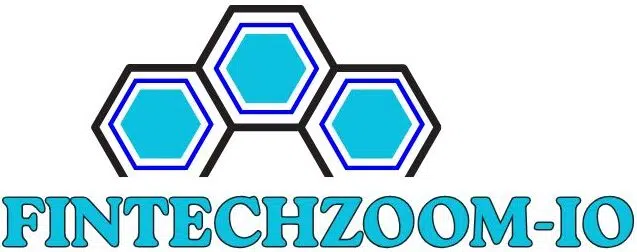🧭 1. Introduction: A World of Work in Transformation
The world is entering an era of permanent transformation.
The year 2025 marks a new economic reality: a workplace driven by Artificial Intelligence, green innovation, and digital globalization.
Traditional career paths — once defined by stability, geography, and hierarchy — are being replaced by fluid, skill-based, and borderless opportunities.
Today, success no longer depends solely on where you work, but on what you can learn and how quickly you can adapt.
“The 20th century was about job titles. The 21st century is about transferable skills.”
In this article, we’ll explore every layer of change — from macroeconomic shifts to individual career strategies — to understand how jobs, industries, and workers are evolving in 2025 and beyond.
🌎 2. The Global Employment Landscape in 2025
2.1 Economic Overview
According to the International Labour Organization (ILO), global employment will grow by about 1.5% in 2025 — translating to roughly 53 million new jobs worldwide.
However, this expansion conceals deep structural transitions.
- Developed economies (United States, Canada, EU, Japan) are focusing on reskilling and automation integration.
- Emerging economies (India, Nigeria, Indonesia, Vietnam) are becoming new labor powerhouses, fueled by technology adoption and population growth.
Global GDP is projected to expand by 3%, but productivity gains are largely concentrated in digital and sustainable industries.
2.2 Regional Employment Insights
| Region | 2024 Growth (%) | 2025 Forecast (%) | Key Drivers |
|---|---|---|---|
| North America | 1.8 | 1.3 | AI development, healthcare, clean energy |
| Europe | 1.2 | 0.8 | Green transition, demographic aging |
| Asia-Pacific | 2.6 | 2.3 | Manufacturing digitization, e-commerce |
| Latin America | 1.1 | 1.0 | Agritech, remote outsourcing, tourism |
| Africa | 2.8 | 2.5 | Renewable energy, youth entrepreneurship |
🌍 Key Takeaway:
Employment growth is shifting from traditional economies to youth-driven regions, particularly Asia and Africa. These markets will supply the global digital workforce of the next decade.
⚙️ 3. The Mega Forces Reshaping Work
The transformation of jobs in 2025 is powered by five interconnected forces:
AI, automation, sustainability, demographic change, and human reinvention.
3.1 Artificial Intelligence Becomes a Co-Worker
AI has moved from a futuristic concept to a daily workplace companion.
From generating marketing strategies to performing financial audits, AI enhances — not eliminates — human potential.
Examples of AI-driven work evolution:
- Financial advisors use AI risk models to forecast portfolios.
- Teachers leverage AI tutors to personalize lessons.
- HR departments employ AI tools for talent analytics.
📊 Statistics:
- 77% of large organizations globally have adopted AI for at least one core business function.
- 45% of work activities could be automated by 2030 (McKinsey Global Institute).
- AI will disrupt 44% of existing skills but create 69 million new roles by 2027 (WEF).
💡 Emerging Professions:
- AI Trainer / Prompt Engineer
- Ethical AI Advisor
- Automation Supervisor
- Machine Learning Compliance Officer
AI is not replacing jobs; it’s redefining them — transforming every role into a hybrid of human insight and machine intelligence.
3.2 The Rise of Skills-Based Economies
The global job market is shifting from degrees to demonstrable skills.
Employers are prioritizing what workers can do over where they studied.
2025 Hiring Data:
| Metric | Percentage |
|---|---|
| Companies using skills-based recruitment | 63% |
| Roles no longer requiring a 4-year degree | 47% |
| Employers valuing certifications over degrees | 70% |
🎯 Example: IBM, Google, and Accenture now fill many technical roles based on practical skill tests and portfolios rather than university credentials.
Result: A more inclusive job market where self-taught coders, designers, and analysts compete equally with degree-holders.
3.3 Hybrid and Remote Work Becomes Institutional
Remote work is no longer an experiment — it’s an established norm.
Companies have optimized digital infrastructure to maintain performance while giving employees autonomy.
| Work Model | Global Adoption (2025) | Key Sectors |
|---|---|---|
| Hybrid (2–3 days remote) | 45% | Tech, consulting, education |
| Fully Remote | 20% | Content, IT, marketing |
| On-Site | 35% | Healthcare, logistics, manufacturing |
🌐 New Geography of Work:
Digital nomad visas in 80+ countries have enabled professionals to live in Bali, Lisbon, or Mexico City while working for firms in London or New York.
💬 Insight:
Flexibility is now a retention strategy, not a perk. Companies that resist it face higher turnover.
3.4 Employee Expectations Have Shifted Permanently
Work in 2025 is not just a contract — it’s a relationship.
Employees expect fairness, wellness, and growth in exchange for loyalty.
Top Worker Priorities (2025):
- Work–life balance — 88%
- Mental health benefits — 79%
- Transparent pay & promotions — 74%
- Flexible hours & hybrid setups — 70%
- Purpose-driven company culture — 66%
🌱 Result:
Organizations that focus on employee experience (EX) outperform competitors by 25–30% in productivity and retention.
💼 4. Sector-by-Sector Employment Outlook
4.1 Technology, AI & Data Economy
Technology remains the foundation of global growth.
The digital economy accounts for 15% of global GDP and is expanding twice as fast as other sectors.
| Role | Avg Salary (USD) | Growth 2025 (%) |
|---|---|---|
| AI Engineer | 125,000 | +16% |
| Data Scientist | 110,000 | +13% |
| Cybersecurity Analyst | 102,000 | +12% |
| Cloud Solutions Architect | 130,000 | +11% |
| Automation Product Manager | 118,000 | +10% |
🚀 Emerging Roles:
- Generative AI Designer
- Automation Workflow Engineer
- AI Compliance Specialist
🧠 Trend: Every business is now a tech business — even finance, manufacturing, and agriculture rely on digital transformation.
4.2 Green Economy & Renewable Energy
Climate policy is now a global growth strategy.
The green transition is expected to create 25–30 million jobs by 2030.
| Region | 2025 Growth (%) | Primary Focus Areas |
|---|---|---|
| Europe | +11% | Solar, hydrogen, green building |
| USA | +10% | EV infrastructure, sustainable finance |
| India | +15% | Wind & solar manufacturing |
| Africa | +12% | Rural electrification, clean tech |
| Latin America | +9% | Biofuels, forest restoration |
High-Growth Professions:
- Renewable Energy Engineer
- Carbon Analyst
- Sustainability Consultant
- ESG Data Manager
🌿 Global Insight:
Every company now faces ESG (Environmental, Social, Governance) compliance — creating a flood of “climate compliance” jobs in finance, law, and data.
4.3 Healthcare & Bio-Innovation
Healthcare is becoming digitally intelligent.
AI, biotech, and telemedicine are transforming how care is delivered.
| Role | Growth (2025) | Description |
|---|---|---|
| Telehealth Specialist | +15% | Remote patient care |
| Genomic Analyst | +14% | DNA-based treatments |
| Health Data Scientist | +13% | Predictive diagnostics |
| Mental Health Therapist | +12% | Wellness & counseling |
🧬 Trend:
AI-supported diagnostics can now detect diseases faster than human doctors — leading to AI-human medical partnerships.
4.4 Finance, Banking & FinTech
The financial world is undergoing technological disruption.
Blockchain, automation, and AI are transforming the global money system.
Key Growth Segments:
- Decentralized Finance (DeFi)
- Digital Payments & Wallets
- RegTech (Regulatory Technology)
- Fraud Detection AI
| Emerging Role | Function |
|---|---|
| Blockchain Auditor | Verifies smart contracts |
| FinTech Product Manager | Oversees digital financial tools |
| Cyber Risk Consultant | Prevents data theft |
| Digital Asset Advisor | Manages crypto portfolios |
💰 Insight: The finance professional of the future must blend economics with code literacy and data analysis.
4.5 Education, Training & Lifelong Learning
In 2025, education is no longer age-bound — it’s lifelong and continuous.
The global e-learning industry exceeds $500 billion, fueled by demand for upskilling and reskilling.
New Education Roles:
- Learning Experience Designer
- AI Tutor / Coach
- Corporate Learning Manager
- EdTech App Developer
🎓 Trend:
The most successful employees view education as an ongoing investment, not a one-time qualification.
🧠 5. The Future Skillset: The Currency of Employability
| Skill Type | Examples | Why It Matters |
|---|---|---|
| Digital Fluency | Data analytics, AI tools, cloud | Essential for all industries |
| Analytical Intelligence | Problem-solving, decision design | Needed for complex decision-making |
| Social Intelligence | Leadership, empathy, teamwork | Drives collaboration & retention |
| Environmental Literacy | Carbon reporting, green design | Aligns with sustainability mandates |
| Learning Agility | Curiosity, adaptability | The new definition of “smart” |
💬 Insight:
In the AI era, “learning speed” is a competitive advantage.
The fastest learners become the most valuable employees.
📈 6. How Individuals Can Thrive in 2025
Step 1: Audit and Upgrade Your Skills
Perform a personal SWOT analysis. Identify your top 3 technical skills and 3 soft skills, then align them with emerging industry needs.
Step 2: Build a Personal Digital Brand
Your LinkedIn or Behance profile is your storefront.
Share your work, publish insights, and engage in online communities to attract employers globally.
Step 3: Diversify Your Income Streams
Freelancing, digital products, consulting, and online courses help protect against job volatility.
Step 4: Practice Adaptive Learning
Adopt a microlearning mindset — short, targeted, continuous courses that keep your skills fresh.
Step 5: Prioritize Wellness
Mental clarity, energy management, and balance are the true productivity metrics in hybrid work life.
⚠️ 7. Challenges Shaping the Future of Work
| Challenge | Description | Impact |
|---|---|---|
| AI Bias & Ethics | Unchecked algorithms cause unfair hiring | Trust issues, inequality |
| Digital Divide | Unequal access to training & tech | Exclusion in developing nations |
| Skill Gaps | Automation faster than education | Risk of unemployment spikes |
| Worker Burnout | Remote overload & isolation | Decline in well-being |
| Economic Volatility | Inflation, supply disruptions | Hiring freezes in some sectors |
🧭 Strategy: Governments, companies, and workers must collaborate on reskilling ecosystems and mental health frameworks.
🔮 8. Predictions for 2025–2035
| Trend | Projection |
|---|---|
| AI-Integrated Workflows | 75% of employees use AI tools daily |
| Green Economy Expansion | +30 million jobs globally |
| Skill-Based Hiring Dominance | 65% of employers drop degree requirements |
| Gig Economy Growth | 1 in 3 professionals freelancing |
| Reskilling Industry Value | $600 billion by 2030 |
| Global Nomad Visas | 90+ countries offering remote work visas |
📘 Forecast: The “Human + Machine” workforce will define productivity, creativity, and innovation for the next decade.
💬 9. The Human Advantage: What Machines Can’t Replace
Even as automation advances, human potential remains the core differentiator.
Empathy, creativity, and moral judgment are the qualities that sustain innovation.
🌿 The Future Belongs To:
- The empathetic leader
- The critical thinker
- The creative problem-solver
- The lifelong learner
“Machines will think faster — but humans will dream farther.”
🧩 10. Conclusion: Adaptability Is the New Wealth
The future of work in 2025 is not about survival — it’s about evolution.
Technology may transform jobs, but adaptability transforms people.
Success will belong to those who:
- Embrace lifelong learning
- Adapt to new tools and markets
- Balance digital efficiency with human empathy
“In the intelligence age, the greatest intelligence is the ability to adapt.”
The careers of tomorrow are already being built today — by curious, open-minded individuals who evolve faster than the world changes.
❓ 11. FAQs: Jobs & Work Trends 2025
| Question | Answer |
|---|---|
| 1. Which jobs will grow fastest in 2025? | AI development, data analytics, green tech, healthcare innovation, and cybersecurity. |
| 2. Will robots replace human jobs? | No — they’ll automate tasks, freeing humans for creative and strategic work. |
| 3. Is remote work permanent? | Yes, hybrid and remote models are standard across global corporations. |
| 4. What should students study for future-proof careers? | Data science, AI, sustainability, communication, and ethics. |
| 5. Do degrees still matter? | Degrees help, but employers value skills, projects, and adaptability more. |
| 6. What industries are most resilient? | Healthcare, renewable energy, finance tech, and education. |
| 7. How can mid-career professionals stay relevant? | Upskill, leverage AI, mentor younger talent, and expand networks. |
| 8. What’s the biggest workplace challenge ahead? | Balancing automation efficiency with human well-being and fairness. |
Trending Insights and Popular Reads on FinanzasDomesticas.com
https://finanzasdomesticas.com/trabajos-antes-y-despues-covid-19/
https://finanzasdomesticas.com/trabajos-desde-casa/
https://finanzasdomesticas.com/trabajos-en-europa/
https://finanzasdomesticas.com/confinamiento-en-madrid/
https://finanzasdomesticas.com/semaforo-rojo-en-la-cdmx/
https://finanzasdomesticas.com/buen-fin-ayuda-economica-para-mexico/
https://finanzasdomesticas.com/los-viajes-de-negocios/
💡 Final Insight
The world of work is entering a new renaissance — powered by technology, guided by sustainability, and driven by human creativity.
Those who keep learning, adapting, and contributing meaningfully will not just survive the future — they will shape it.
“The future isn’t about having a job — it’s about having the skills to create one.”






